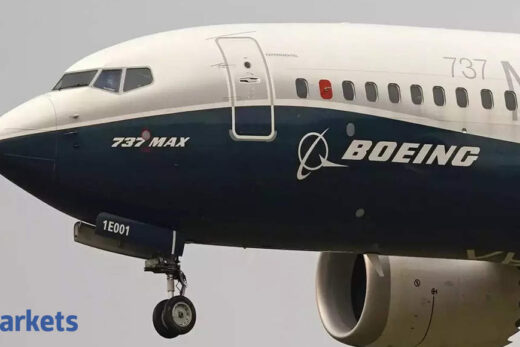Of these, the phase-three trials of Corbevax — jointly manufactured by BE, Baylor College of Medicine in Houston and Dynavax in California — are underway. BE says it will supply 30 crore doses to the Indian government after securing emergency use listing (EUL).
“Trials are underway, and we expect to secure EUL by September. We will be able to deliver a minimum of 30 crore doses to the government thereafter,” says Mahima Datla, MD, Biological E. “We have recently applied to the Drugs Controller General of India, seeking permission to conduct safety and immunogenicity studies (for Corbevax) among children. We will start trials among adolescents first, followed by enrolling children in the 5-to-12 years age group,” she adds.
BE has been in the business of vaccine manufacturing for over six decades. It manufactures and exports large batches of vaccines to over 100 countries. It has eight vaccines that are prequalified by WHO, which means that these meet the global agency’s quality, safety and efficacy standards. The company claims to have an installed capacity to manufacture 50 crore doses a year. It is currently expanding its capacity, spending nearly `1,000 crore. The government has said, in an answer in the Rajya Sabha, that it has given advance to Biological E for at-risk manufacturing. Earlier, in June, the government had said that it would make an advance payment of Rs 1,500 crore for 30 crore doses of Corbevax, to be delivered by December-end.

“We expect to fill at a rate of 7.5 crore doses per month at the time of launch. This will be expanded to 10 crore doses per month starting next February. We will be able to deliver the doses sought by the government.
Post-capacity expansion, we will be able to do more than 100 crore doses annually,” says Datla.
BE has also signed up to contract manufacture Johnson & Johnson’s (J&J) Covid vaccine in India.
Transfer of technology, formulation and drug product is currently underway. J&J will also set schedules of its trials, production and supply. BE is also making a foray into manufacturing mRNA vaccines by partnering with Canadian biotech company Providence Therapeutics. BE has yet to start clinical trials on this.
Providence will transfer technology to BE to manufacture over 600 million doses of Providence’s mRNA Covid vaccine next year. “Once we get the EUA here, Providence will export 30 million doses to India from its facilities in North America,” says Datla.

Industry experts say BE will be able to deliver on its promises. Strong pedigree, experience in partnerships and a keen business acumen will help it grow, they say. “The difference between Datla and Krishna Ella (of Bharat Biotech) is that the former has been in this business for several decades, and the latter is more of a new-world technocrat,” says a retired vaccine scientist, who has worked with both Serum Institute and BE, and doesn’t want to be named. “The Datlas think of vaccines as a business while Ella is passionate about the science of vaccine manufacturing.” BE has manufacturing and research facilities in Telangana, Uttarakhand and Himachal Pradesh.
It has over 5,000 employees, including scientists and medical professionals. “BE will be able to expand their facilities quite easily. It has good tech capabilities and the family is deep-pocketed. It has managed to keep its record clean, with multilateral bodies such as WHO,” says PV Appaji, former director-general, Pharmexcil.
FAMILY AFFAIR
Founded by DVK Raju and GAN Raju, the paternal and maternal grandfathers, respectively, of MD Mahima Datla, in 1953, BE is called India’s first private sector biological products manufacturer. It forayed into vaccines in 1962, four years before Cyrus Poonawalla set up Serum Institute of India in Pune. “The good thing about our business is that we were never a generic API (active pharma ingredient) manufacturer. We only made strategic APIs all along,” says Datla.
BE’s portfolio includes vaccines for tetanus, DPT, hepatitis B, influenza, Japanese encephalitis, measles and rubella. It is one of the largest suppliers of pentavalent and tetanus vaccines in the world, and the largest antivenom manufacturer in the country.
“The vaccine industry has a very high entry barrier, in terms of technology. BE has done well because it has a long history of commercialising innovationled products,” says Pushpa Vijayraghavan, director and healthcare practice lead at Sathguru M a n a g e m e n t Consultants, which has worked with BE previously.
As per ICRA Ratings, BE posted Rs 1,095 crore in revenues and Rs 60 crore in profits in FY2020. It has an order book position of over $150 million for its vaccine business, of which nearly $100 million needs to be executed this fiscal, says ICRA report. “BE has reported a 42% growth in its vaccine business; its liquefied pentavalent vaccine, measlesrubella vaccine and Japanese encephalitis vaccines have done well,” says a former senior executive of BE, who did not wish to be named.
The Datla family owns 100% of the stock in BE. Barring loans from IFC and banks, and grants from a few foundations and government bodies, it is funded through internal accruals and by the family. It has no immediate plansto list publicly or throw open its doors for private equity.
“Equity investors in vaccine businesses will need a really long investment horizon. That’s why we don’t want to take them on our cap-table,” says Datla. “Also, vaccine manufacturers have to price their products lower to make it affordable. This is more of a call of the heart than a call of the brain. This contradicts the principle of maximising shareholder value.”
A closely-held family business, BE has had its share of scuffles for power. After the demise of Mahima’s father Vijaykumar Datla, there was a maelstrom of litigation to secure the management control of BE, with Renuka Datla (Mahima’s mother) on one side and her three daughters on the other. This was later settled out of court, according to company insiders.
ROAD AHEAD
BE hopes to be the largest vaccine manufacturer in India by 2025. “Vaccines will take us to a different level.
We hope to crack open the US and European markets.
Traditionally, these are not vaccine markets; but we believe Covid will change that,” says Datla. “In all likelihood, the world would require booster shots against Covid; that’s where companies like ours will emerge.”
Datla believes governments should control vaccination programmes for only that will make vaccines affordable for everyone. “Vaccines are the best bang for the buck in any public health intervention,” she says.
BE has been dexterous in sewing up partnerships, working with GSK,
, J&J, Sanofi and Valneva.
“Partnerships for vaccine manufacturing is like an involved marriage; there’s a lot of trust, transfer of technology and knowhow involved,” says Datla. There’s no need to reinvent the wheel a lot of times; you just need to find the right partner.” Or, attach the old wagon to a pair of new wheels — and ride on.



